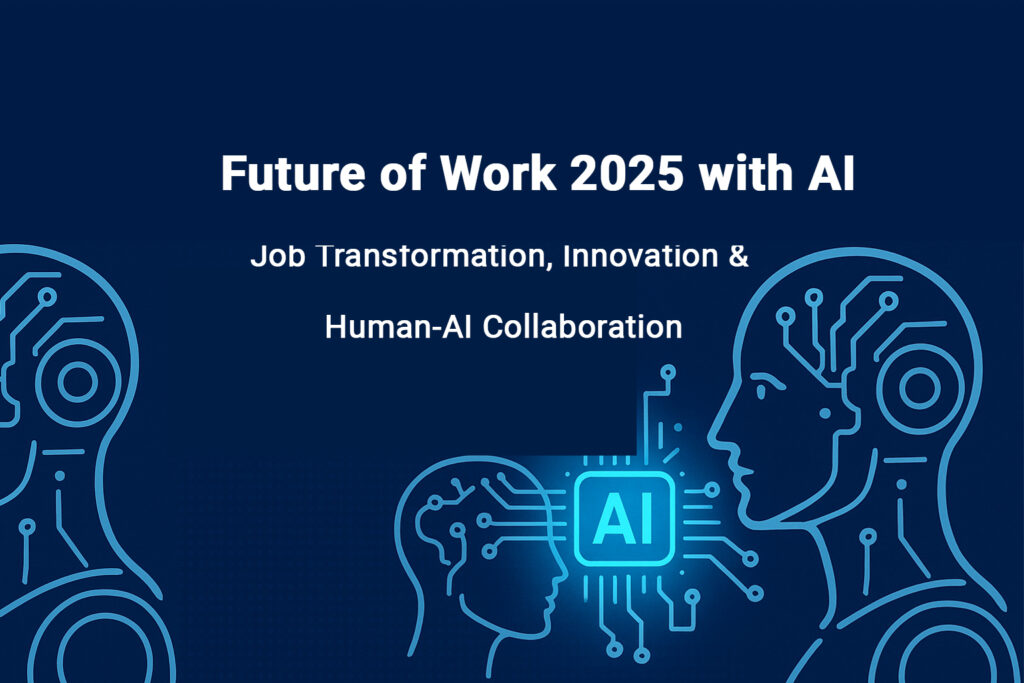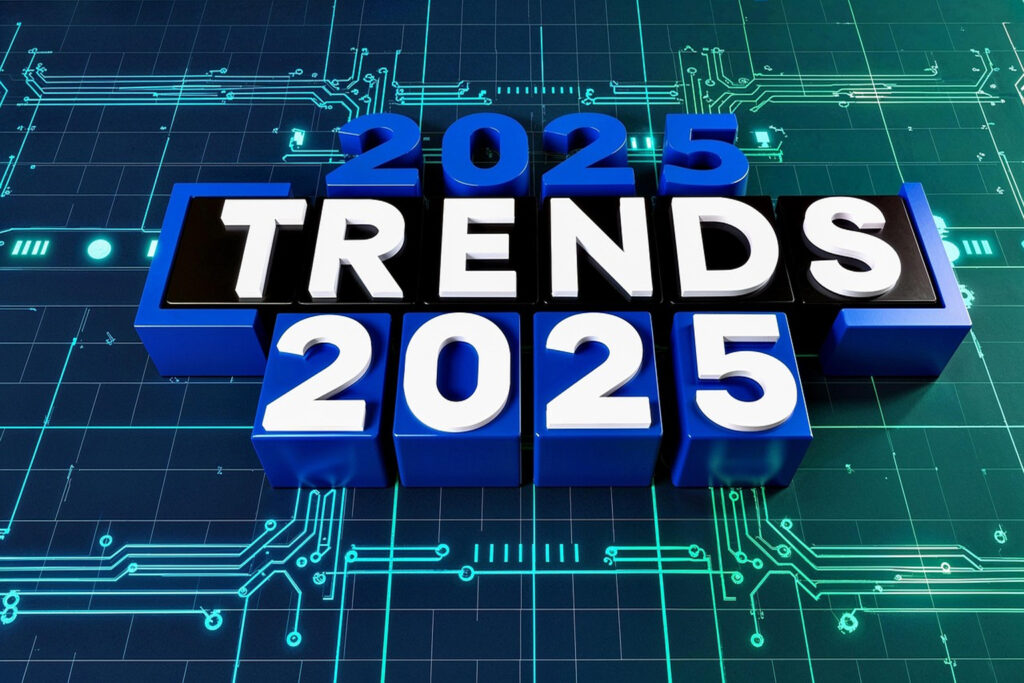The Future of Work in 2025 with AI: Transformation, Innovation, and Human Collaboration

Introduction
The world of work is evolving faster than ever before. By 2025, Artificial Intelligence (AI) will no longer be an optional tool but an essential driver of transformation across industries. Businesses are already experiencing the impact of automation, smarter decision-making, and enhanced productivity. At the same time, employees are preparing for massive job transformation and new ways of working.
The future of work in 2025 will not simply be about replacing humans with machines. Instead, it will be about human-AI collaboration, where innovation and creativity go hand in hand with intelligent technologies.
Future of Work 2025: A Shifting Landscape
In 2025, workplaces will look very different from today. Traditional office models will merge with digital-first environments powered by AI. For example, companies will rely heavily on predictive analytics, real-time automation, and AI-driven platforms to manage workflows. As a result, employees will focus less on repetitive tasks and more on strategic thinking.
Moreover, organizations that adopt AI early will gain a competitive advantage. They will be able to respond faster to market changes, understand customer needs better, and develop smarter business strategies. Therefore, embracing AI will not just be an option—it will be a necessity.

AI in the Workplace: Smarter and Faster
The role of AI in the workplace is growing every day. AI-powered chatbots are already handling customer inquiries, while algorithms assist HR teams in screening resumes. In addition, project managers are using AI tools to optimize schedules and predict delays.
On the other hand, remote work will continue to expand with the help of intelligent assistants. These tools will manage emails, automate reports, and provide insights that save time and resources. Consequently, employees will be able to dedicate more energy to problem-solving, creativity, and innovation.
Job Transformation: Adapting to New Realities
One of the biggest impacts of AI will be job transformation. Routine tasks in manufacturing, customer service, and logistics may decline. However, this does not mean that jobs will disappear entirely. Instead, new opportunities will arise in areas like data science, AI system design, machine learning, and ethical AI governance.
Employees must therefore prepare by upgrading their skills. Digital literacy, critical thinking, emotional intelligence, and creativity will be essential. Furthermore, lifelong learning will no longer be optional—it will be mandatory for staying relevant in the AI era.
AI-Driven Innovation: Reshaping Industries
Innovation is another area where AI will have a major impact. In healthcare, AI will support doctors by analyzing medical images and predicting patient outcomes. In education, personalized learning platforms will adapt to each student’s needs. Meanwhile, in retail, AI will forecast consumer behavior, improve supply chains, and enhance shopping experiences.
As a result, industries that embrace AI will grow faster and adapt more effectively to global challenges. On the other hand, organizations that resist change may fall behind. Therefore, innovation with AI is not just a trend—it is the future.
Human-AI Collaboration: Working Together for Success
The most exciting change is the rise of human-AI collaboration. Instead of competing, humans and machines will work side by side. For instance, doctors will rely on AI to process large data sets, but human expertise will remain essential for treatment decisions. Similarly, marketers will use AI to predict consumer trends, but human creativity will shape campaigns.
This collaboration will create a balance between technology and human values. As a result, workplaces will become more productive, innovative, and adaptive.
Conclusion
The future of work in 2025 with AI will be defined by transformation, innovation, and collaboration. Jobs will evolve, industries will innovate, and humans will learn to work more effectively with machines. Although change may seem challenging, it also brings opportunities. By embracing AI and preparing for new realities, individuals and businesses can thrive in the next era of work.
FAQs (WH Questions)
1. What will the future of work in 2025 look like with AI?
It will involve smarter workplaces, job transformation, and closer human-AI collaboration, with new opportunities for growth and innovation.
2. How will AI affect jobs by 2025?
Some repetitive tasks will decline, but new roles in AI development, data analysis, and ethics will expand, creating new career opportunities.
3. Which industries will benefit most from AI-driven innovation?
Healthcare, finance, education, retail, and manufacturing will experience significant improvements in efficiency and creativity.
4. What skills will be most valuable in the AI era?
Critical thinking, digital literacy, problem-solving, creativity, and emotional intelligence will be key to career success.
5. How can businesses prepare for the future of work with AI?
They should invest in AI tools, train employees in new skills, and encourage innovation and adaptability across all departments.
6. Will AI completely replace human workers?
No. While AI will automate repetitive tasks, human creativity, decision-making, and emotional intelligence will remain irreplaceable.
7. How can individuals prepare for job transformation?
By embracing lifelong learning, developing digital skills, and focusing on abilities that complement AI technologies.